Poverty is multi-faceted. It is much more intricate than just a lack of money.
And like many other aspects of poverty, HIV and AIDS have the ability to take a frightening toll on children.
Today is World AIDS Day, and I’m taking it as an opportunity to let you know how committed we are to fighting the disease.
It begins with our AIDS Initiative program, which is working on a grassroots level through the local church to take on the AIDS pandemic, one child at a time.
Ok, pause.
AIDS Initiative, pandemic, poverty . . . I don’t like throwing around these words. It is easy to just roll over the keyboard and punch out the words. But can you imagine? I mean really, can you even imagine what it is like to be infected with HIV or affected by AIDS?
To better understand the effect HIV and AIDS have on people, particularly people in the developing world, and to get a better glimpse into what the Lord is doing through Compassion, I think we need to unpack a few details. I hope your mind is engaged and your heart is prepared because I am about to give you just that.
Now, as I was saying, our AIDS Initiative works to aid one child at a time. For example, this child:
One morning, 13-year-old Meskerem, a Compassion-sponsored girl in Ethiopia, woke up complaining of fatigue. The top student with a winning smile and personality said, “I thought I was coming down with a cold and that it would just go away.” But a few days later, Meskerem found herself in the ICU ward of the local hospital.
The doctors suspected that the girl’s persistent cough was the result of tuberculosis, brought on by the kind of compromised immune system that HIV infection causes. A subsequent test, given at the permission of her mother, Aberash, revealed the truth: Meskerem had HIV.
After the shocking diagnosis, the doctors scrambled to save Meskerem’s life, which was quickly slipping away. “It was hard to believe this brilliant, healthy girl could come so close to death in such a short period of time,” says Ato Cherent, her Compassion center’s health worker.
Ato stayed by Meskerem’s bedside day and night, praying for God’s help while the critically ill girl underwent transfusions and other procedures to bring her back from the brink.
When she was finally well enough to go home, her mother broke the news to Meskerem. Meskerem later explained, “I felt so sad when I heard about my condition,” she says. “But at the same time, I was glad I was still alive, and I believe Jesus was holding me by the hand when I came face to face with death.”
For the past two years, Meskerem has been taking antiretroviral therapy (ART) twice a day, every day. Her mother is also HIV-positive and on ART. But through all the hardship, the faith of mother and daughter is steadfast.
“God didn’t abandon us, and He will never do so,” says Aberash. “Compassion provides us with nutritional support, medical treatment and education for my daughter. God in His infinite mercy also gave my little girl a second chance. What more could I want?”
And there are hundreds more stories just like this. But if you want more concrete information to help understand the affect the AIDS Initiative is having in the developing world, I have that too.
- Over 2,700 HIV positive children in Africa are receiving support through the AIDS Initiative.
- 1,261 of these children are receiving antiretroviral treatment as well as many life-saving benefits through Compassion.
- Over 16,000 HIV positive caregivers and siblings of Compassion sponsored children are being supported through the Initiative.
- 43 percent of caregivers and siblings in Africa are also receiving antiretroviral treatment.
Ok, wait. What is antiretroviral treatment and how is Compassion’s provision of this treatment different from the approach other organizations take?
I asked Amy Metzger, our senior international health program specialist.
“Compassion’s support for HIV positive children and those living with AIDS is special because we meet the needs that are often unmet. While most governments are now providing ART, we realize that this alone is not enough.
We offer nutritional support, CD4 count testing, psychosocial support, treatment of opportunistic infections and transportation assistance, along with income generation support and housing repair when needed.
Health workers follow up with home visits to monitor a child’s home environment, the treatment progress and work to address any needs a child may have.
These are the critical components that keep the children alive. Our program is holistic and considers the full range of needs of those that are HIV positive and those affected by this pandemic.”
Wow! That sounds pretty comprehensive to me.
More importantly, even though many children in our care are not infected, their lives and well-being are jeopardized by HIV infections within their families and communities.
Therefore, our response to HIV and AIDS extends beyond prevention of new infections and treatment of the infected, to include care for those whose lives are indirectly affected by the pandemic.
Ok, I know that was a lot to take in. But can you believe, in the midst of such horrifying circumstances the kindness and provision of the Lord that is going forth? And He is using you to make the difference!
You can make a difference by making a donation to our AIDS Initiative program to help more children like Meskerem.
Special thanks to Tigist Gizachew, Compassion Ethiopia’s field communications specialist for the story and photos about Meskerem.

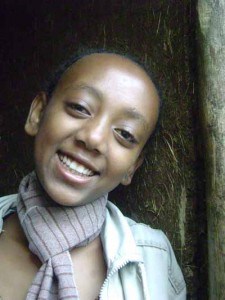 One morning, 13-year-old Meskerem, a Compassion-sponsored girl in Ethiopia, woke up complaining of fatigue. The top student with a winning smile and personality said, “I thought I was coming down with a cold and that it would just go away.” But a few days later, Meskerem found herself in the ICU ward of the local hospital.
One morning, 13-year-old Meskerem, a Compassion-sponsored girl in Ethiopia, woke up complaining of fatigue. The top student with a winning smile and personality said, “I thought I was coming down with a cold and that it would just go away.” But a few days later, Meskerem found herself in the ICU ward of the local hospital.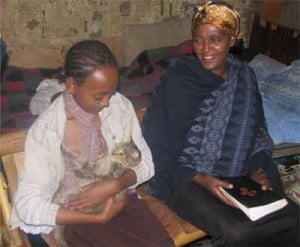
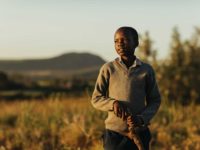
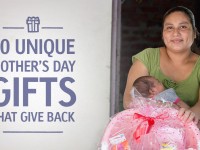
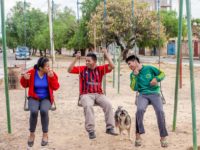
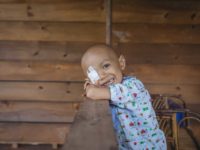


6 Comments |Add a comment
I would recommend the book “There Is No Me Without You” for more information on HIV and AIDS in Ethiopia. It is about an Ethiopian woman who took countless AIDS orphans into her home.
Beautifully written Brianne.
I’m really excited to know that Compassion provides CD4 testing and counseling type support. I’d imagine that viral loads are also checked. I learned something new today and am even MORE proud of Compassion! I work at our health department with HIV patients and do a lot of outreach so we are very busy today with all types of activities. Thanks for highlighting some specifics that help HIV infected (and affected) children and their families!